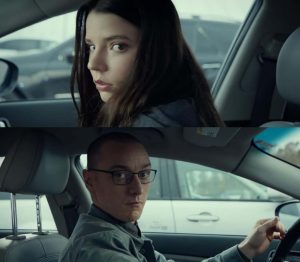World news
Understanding the Ambiguous Ending of ‘Anora’
Introduction: The Climactic Car Scene
Sean Baker’s Anora ends on an emotionally charged and ambiguous note that has sparked widespread discussion among audiences. The final car scene between Ani, played by Mikey Madison, and Igor, portrayed by Yura Borisov, is layered with complex emotions and unresolved tension. This moment encapsulates the film’s central themes—power dynamics, exploitation, and the desperate search for genuine human connection.
Throughout the film, Ani navigates a world that continuously objectifies her, whether through personal relationships or the transactional nature of her profession. By the time she finds herself alone with Igor, her emotional and psychological turmoil has reached a breaking point. This climactic moment is filled with unspoken words, leaving viewers questioning what truly transpires in those final seconds.

Ani’s Journey: From Illusion to Disillusionment
Ani, a 23-year-old stripper from Brighton Beach, enters into a whirlwind romance with Vanya, the son of a wealthy Russian oligarch. What initially seems like a fairytale quickly turns into a nightmare as their impulsive marriage falls apart under the pressures of family expectations. The annulment of their union serves as a harsh reality check, forcing Ani to confront the fact that she was never truly in control of her own fate.
For much of the film, Ani clings to the belief that she can navigate her way into a better life by using the resources available to her. However, as her relationship with Vanya unravels and she is discarded by the very people who once celebrated her, she is left alone, disillusioned, and emotionally shattered. By the time she shares her final moments with Igor, she is at her most vulnerable, unsure of where she stands in a world that continuously commodifies her existence.
The Car Scene: A Complex Exchange
The film’s concluding scene takes place in a car, where Igor returns Ani’s wedding ring—an act that symbolizes the official severance of her ties to Vanya’s world. This moment holds significant weight, as Ani initiates a sexual advance toward Igor, only to recoil when he reciprocates. Instead of following through with the encounter, she breaks down in tears, collapsing into his arms.
This interaction is filled with contradictions:
- Ani’s initial advance can be interpreted as an attempt to reclaim control over her body and choices in a moment where she feels powerless.
- Her sudden withdrawal may indicate that she realizes, in real-time, how deeply she has internalized the objectification she has faced throughout the film.
- Igor, who has been portrayed as both an enforcer and an occasional source of comfort, remains silent, allowing her to grieve the loss of the illusion she had once believed in.
This scene challenges the audience’s perception of Ani’s agency. Was she trying to assert dominance in a moment of weakness, or was she seeking solace in the only form of connection she knew? The absence of a clear resolution forces viewers to draw their own conclusions, making the ending even more impactful.

Interpretations of the Ending
One of the reasons Anora resonates so strongly is its refusal to offer easy answers. The ambiguity of the final scene has led to multiple interpretations, each adding depth to the film’s overarching themes:
-
Reclaiming Agency: Some viewers believe that Ani’s actions in the car were an attempt to reclaim control over her life. Throughout the film, others have dictated her worth and choices. By initiating the encounter with Igor, she momentarily tries to take back the narrative—only to realize that even this act is shaped by her past trauma.
-
Emotional Collapse: Another interpretation is that Ani’s breakdown signifies her recognition of how deeply she has been used—by Vanya, by his family, and by a world that sees her as disposable. Her tears are not just about Igor or the annulment but about the realization that she has lost herself in the process.
-
Seeking Genuine Connection: Igor’s presence in the final scene adds a layer of complexity. Unlike Vanya, who represented wealth and superficial charm, Igor is an enforcer—yet he has shown subtle moments of kindness. Ani’s breakdown in his arms may suggest that she is desperate for a human connection that is not rooted in transaction or expectation.
The brilliance of Anora lies in its ability to let the audience wrestle with these questions. There is no single interpretation that fully captures the depth of Ani’s experience, making the ending all the more powerful.
Director and Cast Insights
Sean Baker has stated that he deliberately left the film’s ending open to interpretation. Rather than providing a neatly wrapped conclusion, he wanted the audience to engage with Ani’s journey on a personal level. The film’s ambiguity forces viewers to confront their own biases and perspectives, making each person’s interpretation of the ending unique.
Mikey Madison, who delivers a career-defining performance as Ani, has shared that she often hears different takes from viewers about what the final scene represents. According to her, this variation in interpretation is precisely what makes the film so compelling. Ani’s story is not meant to be confined to one singular meaning—it is a reflection of the complexities of human experience, shaped by the audience’s own perspectives.
Conclusion: A Poignant and Unresolved Farewell
The ending of Anora is one that lingers long after the credits roll. It challenges the audience to think deeply about themes of agency, exploitation, and the human need for connection. Ani’s final moments with Igor are neither hopeful nor entirely bleak—they exist in a space that reflects the uncertainties of real life.
Rather than offering a conventional resolution, Anora leaves viewers with an unsettling yet thought-provoking conclusion. Ani’s tears serve as a testament to the weight of her experiences, and the lack of a definitive answer mirrors the realities faced by many women navigating a world that often seeks to define their worth for them.
Ultimately, the film’s ending is not about providing closure but about forcing the audience to sit with the discomfort of Ani’s reality. And in doing so, Anora cements itself as one of the most powerful and thought-provoking films of its time.
From nacreboutique


